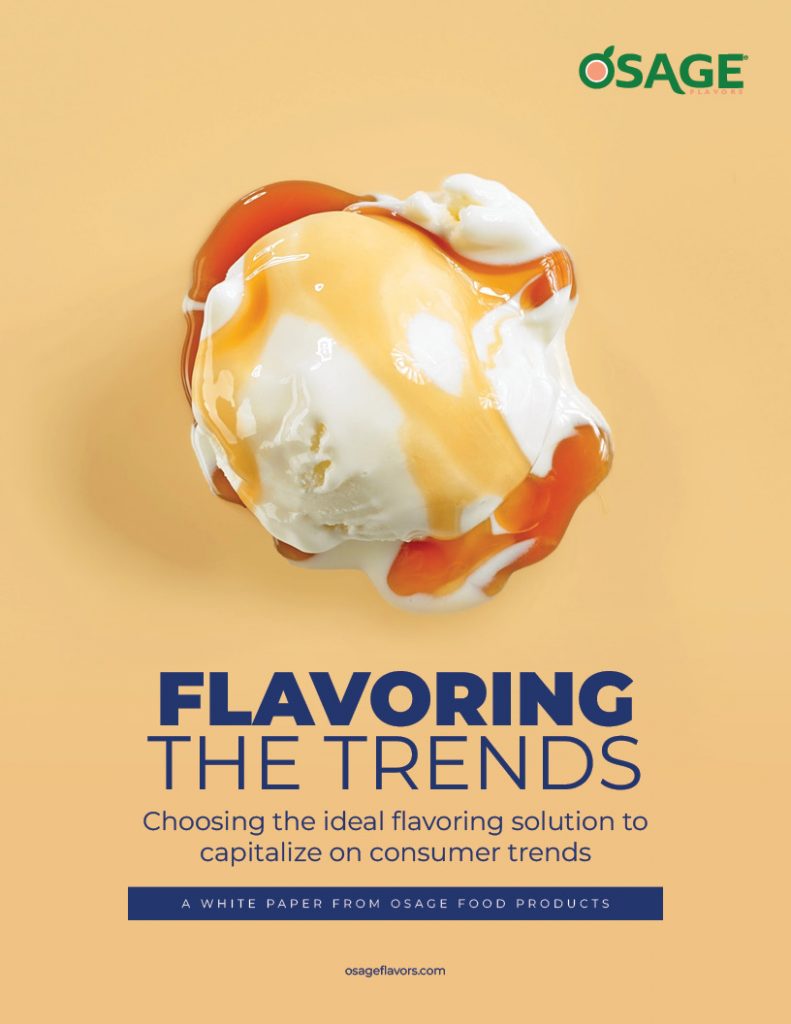Food product trends are constantly evolving. One of the biggest drivers for changing preferences has been linked to people’s understanding of scientific evidence that they believe will help them reach their happiness goals. In other words: which foods will help them feel good?
Food scientists understand the mental health benefits of consuming more of certain types of natural foods. This increased awareness allows food producers to offer new products aimed at satisfying people’s changing desires.
The increase in plant-based food products is a perfect example of this. The growing interest in avoiding animal products has opened up a dialogue that resulted in a significant shift in how many people view what they consume. People have been engaging with one another and contemplating how food affects them and what they can do about it.
The COVID-19 pandemic has also had a significant effect on what we eat. People were often stuck in one place and started looking at which food could improve their mental and physical well-being. The situation produced an opportunity for food developers to gain ground in a new market: “feel good” food.
Read More: Promoting Protein Rich Food Products To Help Beat Quarantine 15
Here are five examples of mood-booster foods that are as good for your consumers’ physical health as they are for their mental health:
- Dark Chocolate: Perhaps not surprisingly, dark chocolate is composed of natural compounds that boost people’s moods making it one of the top feel good food products. Research has shown that dark chocolate contains certain flavonoids that can increase blood flow to the brain and reduce inflammation, which results in better mood regulation naturally.
It has also been shown that the sugars in dark chocolate provide a quick source of energy, rewarding people with a feeling of improved mood.
- Fermented Foods: This category encompasses foods like sauerkraut, kimchi, and yogurts. Their sour taste is due to bacteria breaking down the food in a good way. This food group was born out of the necessity of preserving food for a later time when it wasn’t available. For example, if you were to harvest your crop in summer and had to keep some of it for winter when the food wasn’t available, fermenting that crop was the easiest way to do so. In the process, other excellent health benefits came to light.
The good bacteria found in fermented foods improve a person’s gut health and increase our brains’ serotonin levels, making us feel good. This mood improvement does happen instantly, but the benefits begin to show over a short period of time after the food is consumed.
- Berries: Studies have shown that people who eat more vegetables and fruits in their diets experience less depression overall. It is thought that the link between these food groups and fighting depression is due to their potent antioxidant properties.
One of the biggest carriers of these feel-good food components is found in berries. The deeper the berry color, such as blackberries, the more of a nutritional powerhouse it is. It has been shown that eating berries on a regular basis can improve one’s mood within the space of a couple of weeks.
- Citrus fruits: Many people love the fresh, zesty smell of citrus fruits such as oranges, grapefruits, lemons, limes, and many more. Citrus fruits have long been associated with positive health benefits. They’re rich in vitamins and plant compounds that support our immune systems, which have been on the minds of millions since the start of the pandemic.
All citrus fruits contain a high amount of vitamin C, which helps keep the brain functioning well and aids in pumping out amino acids such as serotonin, which is essential in fighting depression and maintaining mood.
Read More: Putting The Flavor In Functional Foods
- Coffee: The world’s most popular drink is naturally high in caffeine. Caffeine is often viewed in a negative light, but when consumed moderately in a natural form like coffee, it offers fantastic health benefits.
Caffeine releases neurotransmitters in the brain like dopamine, making us feel better. For many people, the smell of coffee – or even just the idea of coffee – improves their mood and makes them feel great before even touching a drop of coffee.
An added benefit of this new market space is its sustainability. The sources of these mood boosters all occur naturally and don’t require a lot of processing to use in your flavor portfolio. For a public developing an increased concern toward sustainability and actively searching for products they consider sourced in a socially responsible manner, using these mood-boosting ingredients is just one more thing that consumers can “feel good” about when buying your food products.




